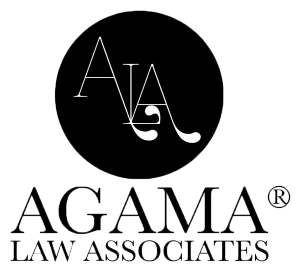I. THE ATTORNEY-CLIENT PRIVILEGE
The concept of attorney-client privilege has been imbibed in the Indian law by virtue of Section 126 and Section 129 of the Indian Evidence Act, 1872 (“Evidence Act”).
Section 126 states that, “No barrister, attorney, pleader or vakil shall at any time be permitted, unless with his client‟s express consent, to disclose any communication made to him in the course and for the purpose of his employment.”
Section 129 states that, No one shall be compelled to disclose to the Court any confidential communication which has taken place between him and his legal professional adviser, unless he offers himself as a witness, in which case he may be compelled to disclose any such communication as may appear to the Court necessary to be known in order to explain any evidence which he has given, but no others
These sections therefore prohibit attorneys from disclosing any communication made to them by their clients, for the purpose of their professional employment, unless clients expressly consent to such a disclosure. This privilege, of course, belongs to the client and not the attorney.
The vital part of this section for the purpose of its applicability, is the phrase “barrister, attorney, pleader or vakil”. Since Evidence Act of 1872 is archaic, and the legal system in India has subsequently evolved, the Advocates Act of 1961 (“Advocate Act”) has to be looked into. Section 29 of the Advocates Act reproduced hereunder, identifies advocates‟ as the only class of persons entitled to practice law, hence merging attorney, vakil, pleader and barrister under the head of advocates. “Section 29 Advocates to be the only recognised class of persons entitled to practise law.—Subject to the provisions of this Act and any rules made thereunder, there shall, as from the appointed day, be only one class of persons entitled to practise the profession of law, namely, advocates. Section 2 (i) defines the term legal practitioner as meaning an “advocate or vakil of any High Court, a pleader, mukhtar or revenue agent”. Therefore, on a perusal of all these Sections, it becomes clear that the Advocates Act applies only to “advocates” and makes it clear that only advocates can practice law in India, hence staying mute on the status of in-house counsels.
II. STATUS OF AN IN-HOUSE COUNSEL IN INDIA
As it can be clearly seen, confidential information given to an in-house counsel cannot be protected under the ambit of Section 126 of the Evidence Act as it is only applicable to “advocates”. Therefore, the protection to in-house counsels can only be extended under section 129 of the Evidence Act, which protects confidential information exchanged between a client and his “legal professional adviser”.
Justice Srikrishna, in his opinion, has stated that “legal professional adviser” u/s 129 of the Evidence Act, can only be a person who has been permitted under the Advocates Act and the Bar Council of India (BCI) Rules to practice law, as the Advocates Act regulates the practice of both litigious and non-litigious matters. Reliance was placed on a few cases in coming to this conclusion, but the most important case that was discussed is the Lawyers Collective v. Bar Council of India and Ors. It was held in this case that, on a perusal of Sections 29, 30 and 33 of the Advocates Act, it could be concluded that the Act includes both litigious and non-litigious practice by advocates. Therefore, meaning that even the lawyers taking up non-litigious practice would come under the purview of the Act, as advocates.
It is pertinent to look into Rule 49 framed by the Bar Council of India in its Standards of Professional Conduct and Etiquette, which clearly states that an advocate shall not be a salaried employee of any person, government, firm, corporation or concern. This rule of the BCI makes it clear that once an individual is employed on a full time salary, he cannot practice in a court of law as an advocate, and therefore, shuts the door for any privilege to the in-house counsels.
Therefore, as far as the Advocates Act is concerned, it identifies only advocates as persons who are entitled to practice litigious and non-litigious matters, while there is no mention of in-house counsels. This goes on to mean that in India, law can only be practiced by advocates, which thereby means that in-house counsels are not treated as advocates and will not be given any privilege as extended to the advocates.
III. ATTORNEY-CLIENT PRIVILEGE IN OTHER JURISDICTIONS
Vietnamese Law of Privilege
When it comes to in-house counsels, Vietnamese law is more generous than other countries‟, as it does not distinguish between legal and non-legal communications. Vietnam‟s Law on lawyers outlines this right of confidentiality between an attorney and his client, and generally this privilege is weak, as, though Article 25 of the Law on Lawyers imposes the obligation of confidentiality on the lawyers, it fails to protect lawyers and their clients from disclosure when a law requires a disclosure to be made.
UK Law of Privilege
Legal privilege, in the UK, based on common law, is of two types, legal advice privilege and litigation privilege. Legal advice privilege may apply to the confidential communications (written and oral) between the lawyer and the client that come into existence for the purpose of giving or receiving legal advice, in respect of the client‟s legal rights and obligation, and includes in-house lawyers. But this protection is given only if the content of the communication is strictly legal.
European Union Law
In EU countries, the primary test involves checking the status of the lawyer making the communication. Following the 1982 decision of AM&S Europe v. Commission of European Communities1, the privilege is limited to communications conducted with independent lawyers. Initially, a determination must be made if an attorney is independent, this being defined as to whether or not an attorney was "bound to his client by reason of employment" for example an employee. The case of P Akzo Nobel Chemicals and Akcros Chemicals v. European Commission1 maintains this stand.
IV. AMENDMENTS REQUIRED
As stated above, legal practice by in-house counsels remains unregulated in India. It would be beneficial for the legislature to clarify the legal position of in-house counsels, and the status of protection given to communications between these counsels and their clients/employers.
At this point, it would be pertinent to look into the intention of the legislature behind including a separate section that provides protection from disclosure for advice solicited from a „legal professional adviser‟. If it was the intention of the legislature to protect confidential information exchanged between a client and his „advocate‟ only, then section 126 would have been enough. But the inclusion of section 129 goes on to point out the objective of the legislature to protect communication between clients and independent legal practitioners who do not come under the ambit of “advocates”
The only aspect, in my opinion, which should be given weight while judging whether privilege should be given in case of an in-house counsel is the “content” of the communication between the counsel and his employer. If such communication is purely legal in nature, then it must be protected, but if it is in the nature of business communication, it should not be protected. Therefore, India, like several other countries that have clear laws/rules in place for in-house counsel- client privilege, must either amend the Advocates Act, 1961 to include practice of law by in-house counsels, or issue separate guidelines regulating the practice of law and legal protection given to qualified lawyers who do not practice as “advocates” and work full-time under an employer.
The content of this article is intended to provide a general guide to the subject matter. Specialist advice should be sought about your specific circumstances.

